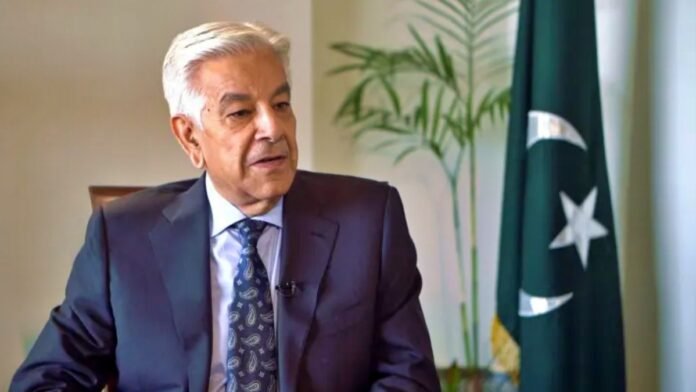
Key Points
- Pakistan’s Defense Minister Khawaja Asif accused the Taliban of acting as India’s “proxy” and claimed decisions in Kabul are influenced by New Delhi.
- The accusation came amid ongoing violent border clashes and a fragile 48-hour ceasefire between Pakistan and Afghanistan.
- Asif expressed skepticism over the ceasefire lasting, linking the Taliban’s actions to India’s strategic interests against Pakistan.
- Pakistan alleges rising terrorist attacks from Afghan soil, particularly by Tehreek-e-Taliban Pakistan (TTP), worsening security concerns.
- India has consistently denied involvement, calling such claims baseless and emphasizing its strict anti-terrorism stance.
New Delhi: Following escalating tensions and border clashes between Pakistan and Afghanistan, Pakistan’s Defense Minister Khawaja Asif made provocative allegations, accusing the Taliban of being a “puppet” of India. In a recent interview, Asif charged that Kabul’s Taliban government is waging a proxy war for New Delhi, undermining Pakistan’s security interests amid worsening cross-border violence.
Asif suggested that the Taliban’s decision-making is now heavily influenced by India, dubbing the Afghan Foreign Minister Amir Khan Muttaqi’s recent visit to India as a cover for undisclosed “ulterior” plans against Pakistan. He expressed doubts about the durability of the recently brokered 48-hour ceasefire that followed intense fighting, causing dozens of casualties on both sides.
The Defense Minister’s comments come amid Pakistan’s accusations that terrorist groups such as Tehreek-e-Taliban Pakistan (TTP) and other militants are operating with relative freedom from Afghan territory, carrying out repeated attacks on Pakistani security forces. Islamabad claims the Taliban has taken insufficient action to curb these threats, fueling growing frustration and border insecurity.
While Pakistan’s narrative blames India for sponsoring Taliban moves, India has consistently rejected these allegations as without basis, reiterating its firm opposition to terrorism in all forms. Indian officials maintain their diplomatic focus on peace and stability in the region, asserting that India remains committed to fighting terrorism and nurturing constructive ties with Afghanistan.
The volatile Pakistan-Afghanistan border situation continues to challenge regional stability, with ceasefires proving fragile and mutual distrust deeply entrenched. Khawaja Asif’s assertions have added fuel to the political fire, complicating hopes for lasting peace amid a complex tapestry of regional geopolitics.
As the ceasefire period progresses, the international community watches closely, urging restraint and dialogue to prevent further escalation in a region already marked by decades of conflict and mistrust.





















































